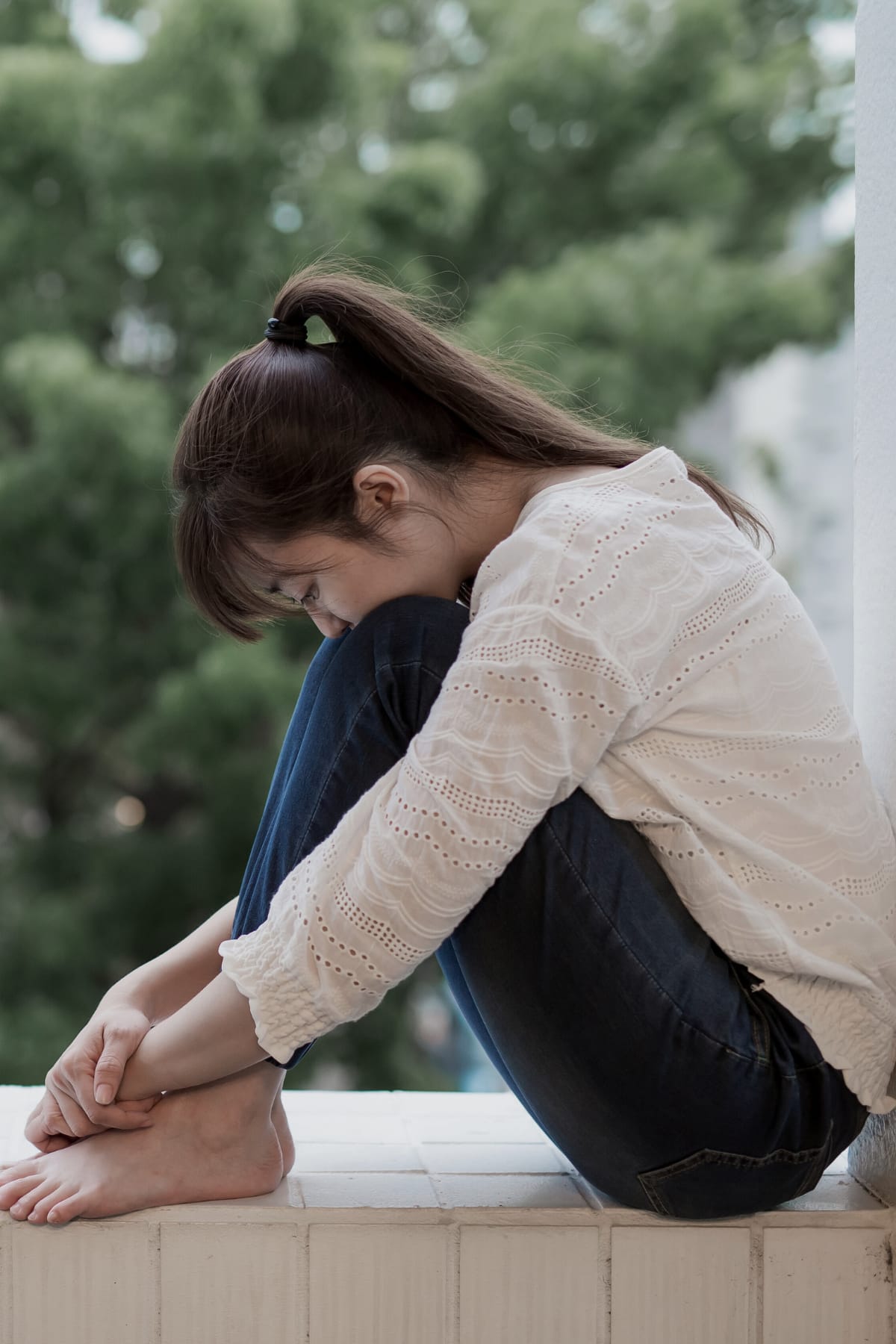
This post may contain affiliate links. For more information, read the full disclosure here.
Loneliness and depression are two common challenges that often come together. Feeling alone and depressed at the same time can be highly overwhelming and unpleasant, but it is not a sentence for life!
Depression, also known as major depressive disorder, is a common mental health condition characterized by persistent feelings of sadness, low mood, and a lack of interest or pleasure in activities.
It goes beyond the usual ups and downs that people experience in everyday life and can significantly impact a person’s thoughts, emotions, behaviors, and physical well-being.
Depression is a diagnosable and treatable mental health condition that requires aid from a professional.
Loneliness is a personal perception of being alone. It is characterized by a sense of isolation and a lack of meaningful social connections.
You can feel lonely when you are indeed alone or when you are with people you don’t feel emotionally connected to.
These conditions can seriously affect your quality of life when experienced separately or combined. Are there ways to recover from feeling alone and depressed? Let’s find out.
Is Loneliness A Side Effect Of Depression Or The Other Way Around?
When contemplating loneliness and depression, questions arise. Can they coexist, and which one gives birth to the other?
Depression can be a very lonely experience simply because you mostly go through it alone.
Even with a loving, supporting system of people or having therapy sessions, there are still times you may feel alone in your diagnosis.
You may experience dissociation like no one can understand and resonate with you.
On the other hand, constantly feeling alone can lead to deep feelings of sadness and reduced self-worth, chronically resulting in depression.
Loneliness can be a side-effect of many mental health conditions but can also lead to poorer physical and mental health.
The answer as to how they are linked is not definitive, but feeling alone and depressed can coincide and cause each other to deteriorate.

Why Are You Feeling Alone And Depressed
There are several reasons you could be feeling alone and depressed at the same time:
- Dealing with a physical or mental health condition alone without a support group.
- Going through or having experienced a traumatic event.
- Going through challenging times, like losing a loved one, being dismissed, etc.
- Cultural and social stigmatization due to ethnicity, sexual orientation, etc.
- Old age and retirement due to loss of purpose and social network and physical limitations.
- Struggling with financial problems that reduce your quality of life and social interactions.
- Relationship issues such as breakups, divorces, or conflicts with friends and family.
- Academic pressures, job-related stress, or career uncertainties lead to emotional strain.
- Negative self-perception, low self-esteem, and a distorted view of oneself.
- Being a caregiver for an extended period results in emotional exhaustion and isolation.
- Experiencing a major life change, like moving to a new place, which disrupts social connections.
- Substance abuse or addiction, which can isolate individuals and exacerbate feelings of depression.
How To Process Feeling Alone And Depressed
Loneliness and depression can wildly affect your mindset, actions, and quality of life. Dealing with these conditions is challenging and can be a life-long effort.
Although it may feel impossible to break through, it can happen with consistent effort, professional guidance, and a supportive circle.
As always, you can forge practices that can help you process feeling alone and depressed. Here you will find some suggestions to inspire and help you navigate your self-healing journey:
Acknowledge How You Feel
The first step towards healing involves acknowledging the emotions you are experiencing. Suppressing or denying feelings of loneliness and depression can exacerbate their impact.
Instead, allow yourself to sit with these emotions, understanding that they are valid responses to your current situation. By recognizing your feelings, you lay the groundwork for meaningful change.
Practice Self-compassion
Sometimes, regulating our emotions is over our powers. Beating yourself up for feeling the way you do can place further obstacles on your recovery journey. Cultivating self-compassion is central to your well-being.
Understand that struggling with loneliness and depression is not a reflection of personal failure. Not being able to “feel better” is not something you should blame yourself for.
Treat yourself with the same kindness and understanding that you would offer to a dear friend.
Shower yourself with the same empathy and gentleness you would extend to someone facing similar challenges.
Keep A Journal Of Your Emotional State
Deepening your understanding of your situation can help you feel stronger in your shoes, find practical solutions, and gain a sense of control.
Keeping a journal can serve as a powerful tool for self-reflection and emotional processing. Write down your thoughts, feelings, and experiences regularly.
This practice can help you identify patterns, triggers, and even moments of resilience. Journaling provides a safe space to express yourself, offering insights into your emotional journey.
Also, by honing a better understanding of your emotions, you can more effectively communicate them to other people. This makes it easier to forge more profound relationships and seek better help.
Find Emotional Support Habits
Seek out activities that genuinely uplift your spirits and provide emotional relief.
Whether it’s listening to music, spending time in nature, or indulging in a creative pursuit, these habits can act as emotional anchors, helping you navigate feeling alone and depressed.
You can schedule these activities into your daily life as a healthy coping mechanism to tackle negative emotions and keep yourself generally regulated.
Know that you have these practices at hand any time you need emotional support.
Explore A New Interest
Engaging in a new interest or hobby can infuse your life with a renewed sense of purpose and excitement.
Exploring uncharted territories not only distracts from negative emotions but also introduces positive elements that can help you counteract feeling alone and depressed.
By leaning into your interests, you also invite the potential for deeper self-discovery and understanding. Spending quality time alone or with others can alleviate feelings of loneliness.
Engage With Like-Minded People
Finding a squad of people that matches your energy to connect can be challenging. By exploring your interests and diving into new hobbies, you can conveniently and safely interact with people that have something in common with you.
Connecting with individuals who share your interests can create a sense of belonging and camaraderie.
Whether online or in-person, these connections can help you break free from the clutches of loneliness by fostering meaningful relationships based on shared passions.

Participate In Support Groups
Support groups offer a comforting sanctuary where people navigating similar challenges come together to share their stories, exchange valuable perspectives, and provide solace.
In these compassionate spaces, you’re free to open up without fear of criticism, understanding that others share your struggles.
These groups serve as nurturing spaces where you can express yourself without judgment, realizing that you are not alone in your struggles.
Find Purpose In Life
Rediscovering a sense of purpose can alleviate feeling alone and depressed.
Engaging in activities that make you feel needed and useful can shift your focus from feelings of isolation to the positive impact you can create in the world around you.
For example, you can provide guidance and assistance to people with similar concerns by engaging in support groups.
You can also offer your help in volunteer groups you resonate with or support causes that you align with.
Focus On Gratitude
Gratitude is the gateway to happiness. However, it takes a lot of practice to identify things to be grateful for when your mental health is affected.
By making conscious efforts to insert gratitude into your life daily, you can redirect your attention toward the positive aspects of your life.
Regularly acknowledge and appreciate the small joys, accomplishments, and blessings that surround you.
Shifting your mindset in this way can gradually lighten the weight of feeling alone and depressed.
Consider Getting Professional Assistance
While self-help strategies can be immensely valuable, seeking professional assistance can be a pivotal moment in your healing journey.
Know that when things get tough, there is always this option for you – you are never alone.
Therapists, counselors, and mental health experts are equipped to provide personalized guidance, helping you navigate loneliness and depression with expert care.
Final Words On Feeling Alone And Depressed
Overcoming the challenging reality of feeling alone and depressed is a personal journey that looks different for everyone.
Let’s keep in mind that healing doesn’t come in a neat, straight line. There might be setbacks that pop up along the way. But remember, these moments don’t define your journey.
Get inspiration from these strategies and create your own healing practices that match your personality and emotional needs.
As you step onto this transformative road, approach yourself with a generous dose of patience, kindness, and understanding.
Even if your loneliness is taking the better of you, always remember that there are people who experience the same things as you all around the world.
